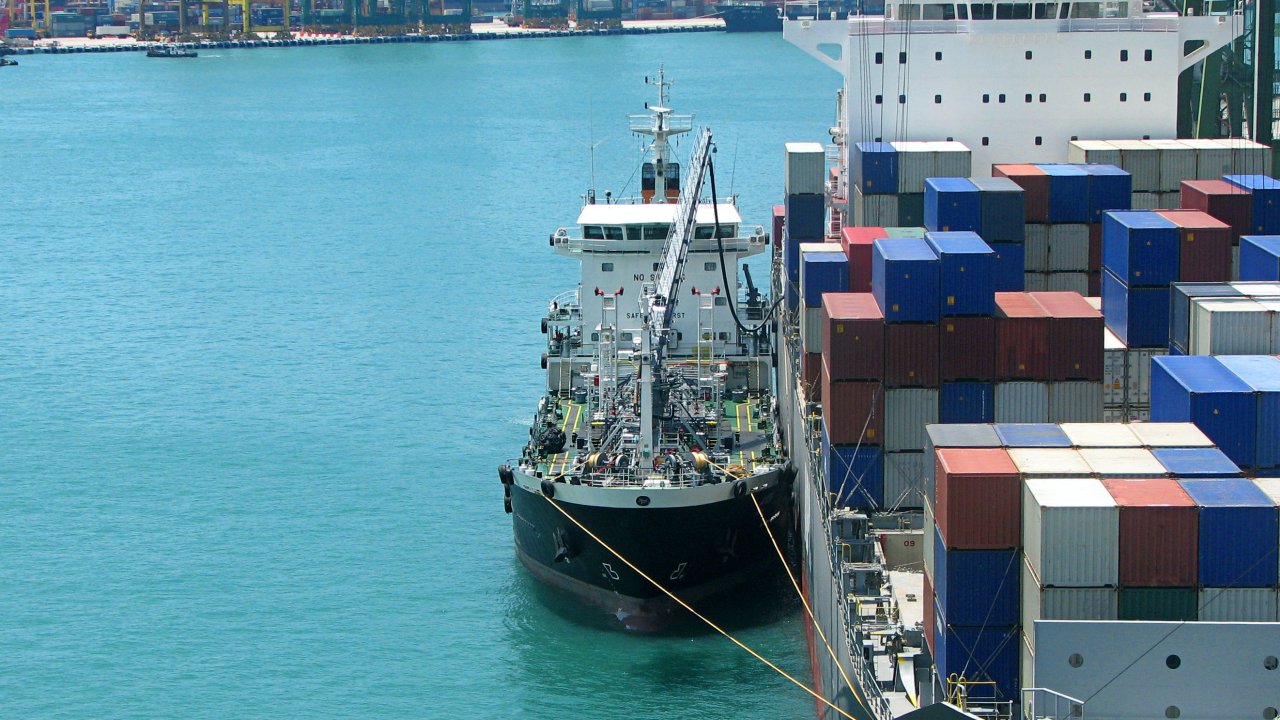
 |
Bunker Holding has concluded its first blockchain-powered carbon insetting operation as part of a new partnership with carbon insetting specialist 123Carbon, and Bureau Veritas.
The tie-up allows for the additional cost delivery of lower carbon, alternative marine fuels – such as sustainable biofuel – to be shared by carriers, freight forwarders, and cargo owners within the same value chain; allocated based on a globally accepted book and claim methodology.
"We're excited to work with 123Carbon and Bureau Veritas, as we believe in complete transparency of how insets are created and transferred. Insetting is not new, but one concern within the maritime sector is under what circumstances alternative fuels are supplied, and who owns the emissions reductions," said Tobias Troye, Head of Carbon Solutions at Bunker Holding.
By combining its alternative fuel supply expertise, its access to low-carbon fuels and carrier network with 123Carbon's platform, Bunker Holding says it can now offer carriers, freight forwarders, and cargo owners complete transparency and assurance regarding how their insets reduce maritime emissions.
"We are delighted that Bunker Holding not only uses our advanced platform for the issuance of the certificates, but has also chosen a fully branded solution to deliver the certificates in a secure environment to its customers," remarked Jeroen van Heiningen, Managing Director of 123Carbon.
By working with 123Carbon's blockchain-based insetting platform, and Bureau Veritas as third-party assurance partner to verify the fuel intervention and all related documentation, Bunker Holding is looking to ensure that all insets are issued according to Smart Freight Centre's Book & Claim methodology and 123Carbon's assurance protocol.
To facilitate the intervention, Bunker Holding connected three different parties: the cargo owner, who wishes to reduce their scope 3 emissions and is willing to pay the 'green premium'; the ship operator, to decarbonise its vessels through the use of biofuels; and the biofuel supplier, to deliver safe, high-quality low-carbon fuels. Due to the commitment from the cargo owner to purchase scope 3 insets, Bunker Holding was able to offer the biofuel at a more competitive cost to the ship operator, enabling the carrier to use biofuels instead of conventional fossil fuels.
"As a group, we are operationalising our decarbonisation strategy, and one key component has been to develop our alternative marine fuel supply capabilities, among others by securing fully certified biofuel availability in more than 100 ports around the world. The relative higher cost of alternative fuels may still prevent carriers to bunker it. However, carbon insetting helps bridge that gap, as it enables cost sharing and also sends an important demand signal to alternative fuel producers to scale up production," commented Valerie Ahrens, Senior Director of New Fuels and Carbon Markets at Bunker Holding.

|
ICS webinar explores regulatory framework for nuclear-powered merchant ships
Industry experts discuss the timeline and challenges for adopting nuclear propulsion in the commercial shipping sector. |
|
|
|
||

|
Oilmar DMCC seeks senior bunker trader for Dubai office
Dubai-based energy trader recruiting for Middle East, Indian subcontinent and Africa trade flows. |
|
|
|
||

|
Oilmar DMCC seeks bunker traders for Singapore office
Dubai-based trader recruiting mid-level and senior professionals to expand Asia-Pacific marine fuels operations. |
|
|
|
||

|
ClassNK updates EU shipping emissions guidance for LNG-fuelled vessels
Japanese classification society releases revised FAQs addressing methane slip measurement procedures. |
|
|
|
||

|
Bureau Veritas delivers first 15,000-teu methanol dual-fuel container ship for CMA CGM
Classification society completes delivery of CMA CGM Monte Cristo built by DSIC Tianjin. |
|
|
|
||

|
IBIA announces new date for mass flow meter training course in Rotterdam
Training scheduled for 12 May follows mandatory MFM implementation at Rotterdam and Antwerp-Bruges ports. |
|
|
|
||

|
Maersk and Hapag-Lloyd suspend Strait of Hormuz transits amid Middle East security crisis
Container carriers reroute services around the Cape of Good Hope as military conflict escalates. |
|
|
|
||

|
Operations continue as normal at most Middle East ports
Most facilities operating normally, with exceptions in Bahrain, Oman and Saudi Arabia. |
|
|
|
||

|
Naftomar takes delivery of 93,000-cbm dual-fuel ammonia carrier
Gaz Ronin features a MAN dual-fuel engine with high-pressure selective catalytic reduction technology. |
|
|
|
||

|
AYK Energy completes world’s largest marine battery retrofit on Wasaline ferry
Aurora Botnia receives 10.4 MWh battery system, bringing total capacity to 12.6 MWh. |
|
|
|
||
| Bunker Holding and NeoGreen Hydrogen sign MoU for green ammonia and synthetic fuels [News & Insights] |
| Bunker One and Acelen launch Itaqui anchorage operation [News & Insights] |
| Bunker One launches its first methanol bunker tanker [News & Insights] |